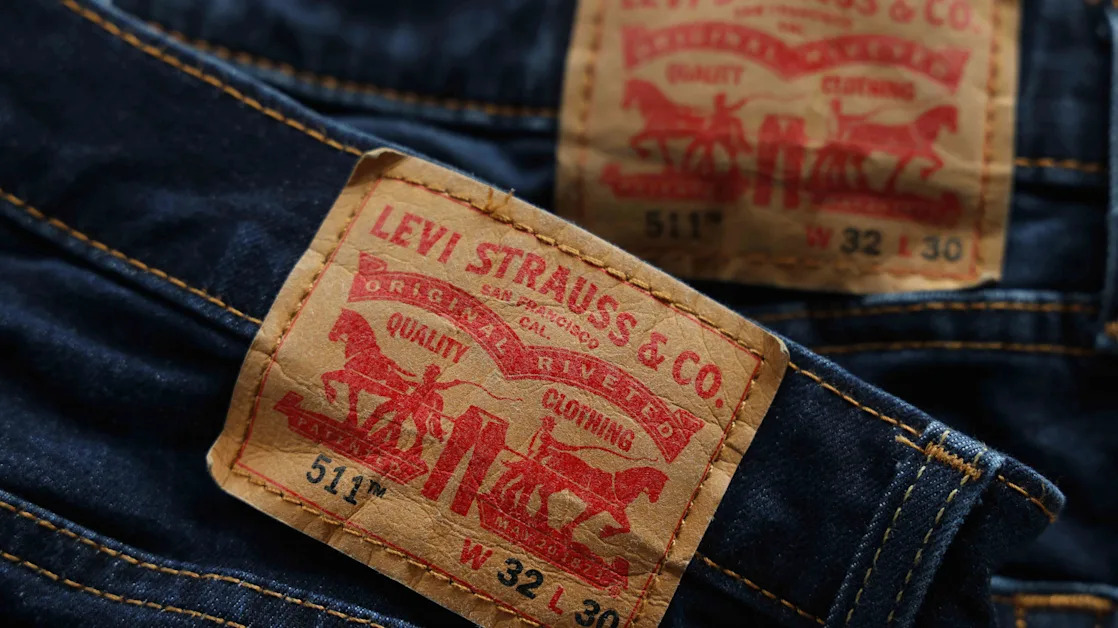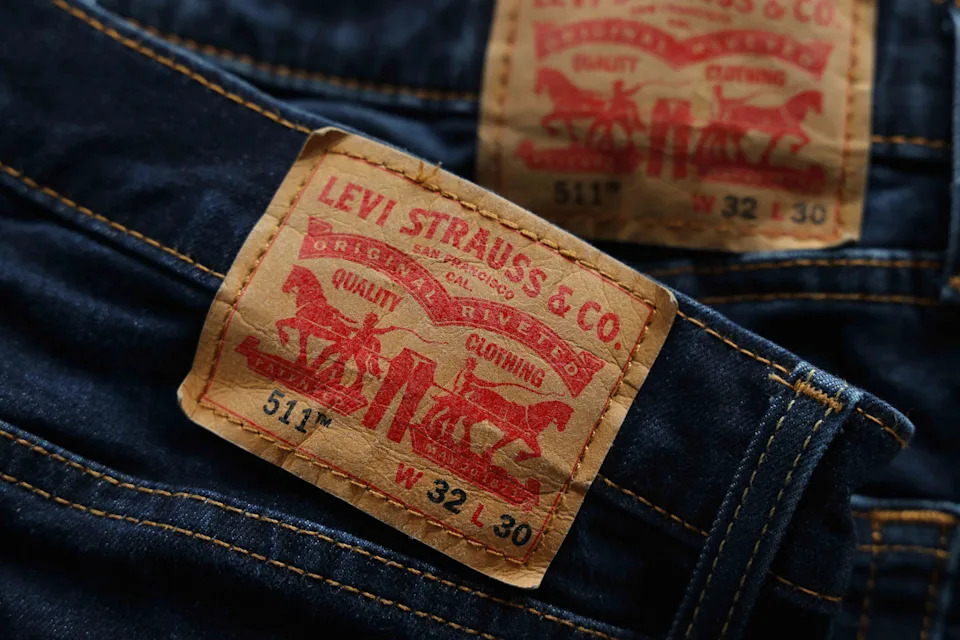
Levi's Stock Rises as Firm Says Tariff-Fueled Price Changes Would Be 'Surgical'

Key Takeaways
Shares of Levi Strauss ( LEVI ) rose Tuesday, a day after the denim giant reported better-than-expected first-quarter profit and gave a relatively upbeat outlook on the Trump administration's new tariffs.
After the bell Monday, Levi's reported quarterly adjusted earnings per share (EPS) of $0.38, above the $0.28 consensus forecast of analysts polled by Visible Alpha. The company generated $1.53 billion in revenue, in line with estimates.
Its Dockers business now is classified as "discontinued operations," as Levi's made the decision during the first quarter to pursue a sale of the brand after launching a review in October .
CEO Michelle Gass said in Monday's earnings call that the company plans to be "surgical" with any pricing changes forced by the new tariffs, according to a transcript from AlphaSense. Gass said customers have been buying more of Levi Strauss' premium products in recent quarters, giving the company more pricing power.
Shares were up 3% soon after the bell after rising as much as 11% in the opening minutes of trading.
Levi's Expects 'Minimal Impact' From Tariffs in Second Quarter
Levi's CFO Harmit Singh said on Monday's earnings call that the company expects "minimal impact" from tariffs on its second-quarter profit margins, as much of its inventory has already been imported. Singh said the tariffs could be a "significant challenge" later this year, but he and Gass said they are "fluid" and could change.
The company imports products from 20 countries into the U.S., and Gass said Levi's has created a "task force" to evaluate ways to minimize the potential impacts of tariffs.
In a note following the earnings, JPMorgan analysts upgraded Levi's stock to "overweight" from "neutral," while also trimming the stock's price target to $17 from $19. The analysts cut their price target because they believe tariffs will likely hurt profits this year, but said Levi's should be able to mitigate an estimated 75% of the cost because of changes to its business since tariffs played a role in the first Trump administration.